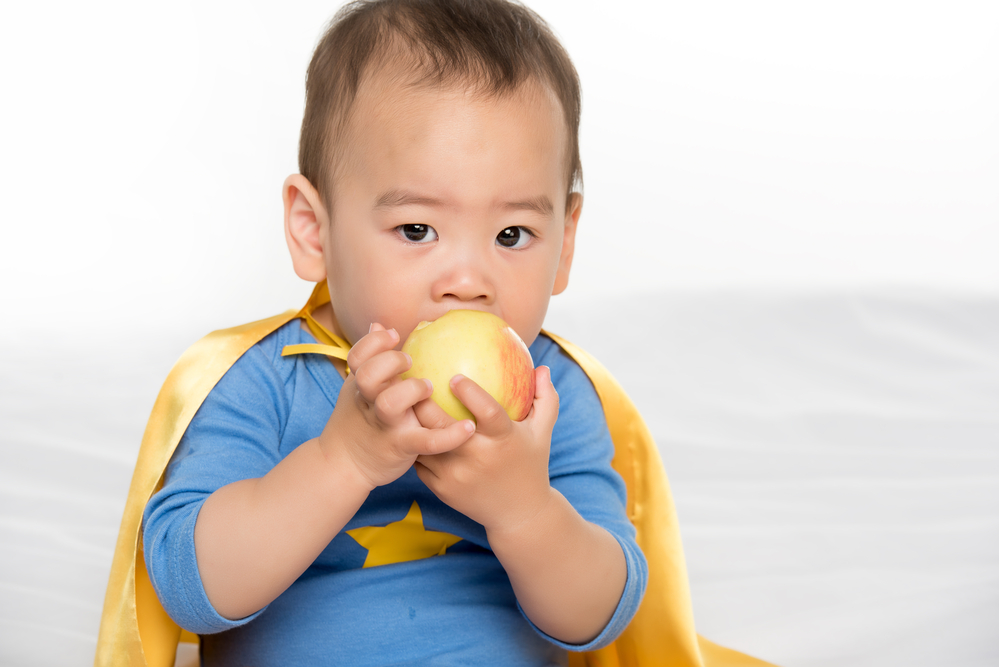
Developmental milestones are skills that most children achieve by a certain age through the things that they do such as playing, learning, speaking, behaving and moving.
From the second year onwards, expect your toddler to be on the go, all the time! This is where they are very much aware of themselves and their surroundings, which leads to a keen interest to explore new things and people.
Here are some things that your toddler might get up to:
Communication and language skills
- He can say between 10 to 20 words
- He understands and can carry out one-step instructions (“Give me your cup”)
- He points to some body parts (That’s where the song ‘Head, Shoulders, Knees and Toes’ come in handy)
Movement skills
In terms of movement and physical development, your toddler can:
- Run
- Climb the stairs with you holding his hand
- Throw a ball
- Take off his clothes
- Scribble with a crayon
Social and emotional skills
Your toddler is getting better at expressing himself now as he does the following:
- Engages in pretend play
- Laughs when he feels tickled
- Shows affection by hugging and smothering you with wet kisses
- Shows his displeasure through words (“No!”) or tantrums
Cognitive skills
You’ve got a real thinker and fast learner in your two-year-old!
Observe him as he:
- Names all his favourite toys
- Names objects or actions in a picture book
- Imitates when you are doing the chores (e.g cooking)
- Can match pairs of objects (e.g. grouping red buttons together)
What you can do to help with your toddler’s development
To stimulate your toddler’s learning and development during this stage, here are some simple things you can do together:
- Read a great variety of books daily
- Ask him to find or name body parts and objects
- Play matching games that stimulate his thinking and motor skills (e.g. shape sorting and simple puzzles)
- Expand your toddler’s vocabulary and language skills by expanding on the words he says and teaching him the right ones. For example, when your toddler says “bur-bur”, you can reply by saying, “Yes, those are bubbles!”.
- Encourage your toddler to do things on his own by guiding him in dressing and feeding himself.
- Respond to good behaviour and keep punishment minimal (i.e. by using very brief time outs). When correcting, always tell or show what he should do instead.
- Encourage your toddler’s curiosity and give him opportunities to recognise common objects by exploring the playground or going on bus rides.
When should you be concerned about your toddler’s milestones?
Doctors refer to certain milestones to tell if a toddler’s development is on track. There is a wide range of what’s considered normal, as some children gain skills earlier or later than others.
Talk to your doctor about your child’s progress and raise your concerns if you notice that your toddler:
- Doesn’t walk
- Doesn’t make eye contact or gesture to items of interest
- Speaks fewer than five words
- Can’t seem to understand simple requests
Also, it is important to highlight to your doctor if you noticed that your toddler seems to have lost skills he once had or shows weakness on one side of the body.























